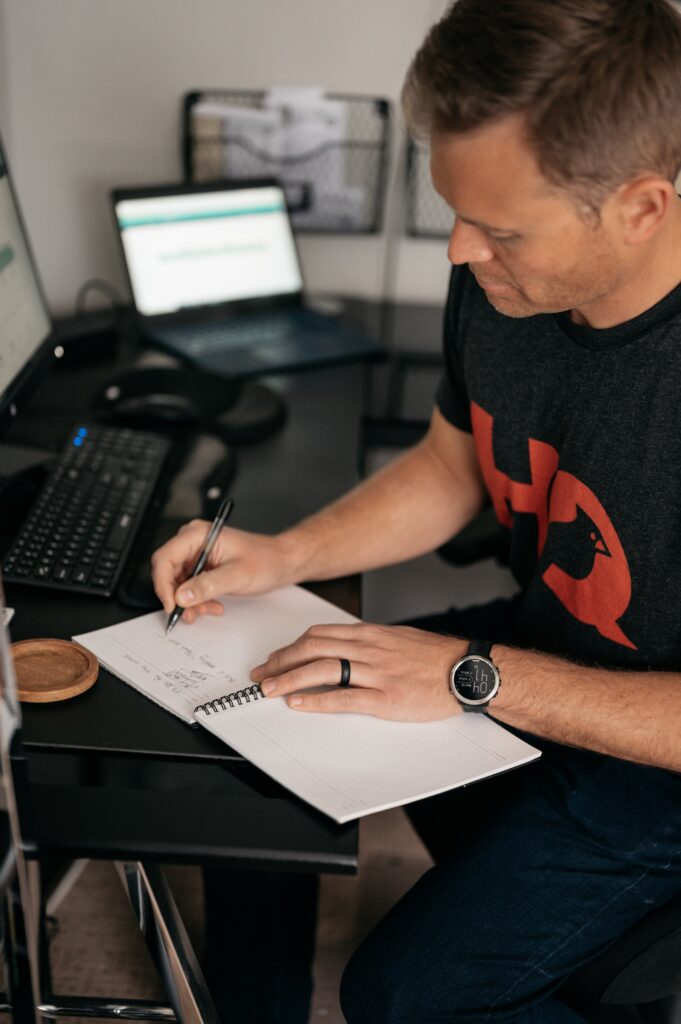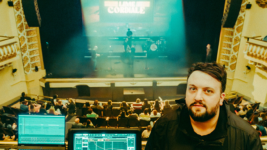Tech Talk
27 Oct 2022
What Are the Challenges of Virtual Events and How to Overcome Them?

Subscribe to CX E-News
Running any kind of event is inevitably a challenge; that’s why event producing is a job and not a hobby. Virtual and hybrid events bring their own unique complications that may be overlooked by those with more experience running in-person events. However, even with COVID-19 increasingly more of a mild nuisance than a mortal threat for most people, virtual events are now indelibly part of the events landscape, so it helps to know what challenges event producers will face and, more importantly, how to overcome them.
Of course, this being CX, we’re going to be looking at this more from an AV support perspective than that of an event producer. However, even if some of these tips seem obvious, it will help to know what clients may be at risk of overlooking so that you can give them advanced warning and offer to get them out of the metaphorical hole before they’ve had a chance to dig it too deep.
Plan Ahead
No, this article hasn’t been guest-authored by Captain Obvious. As illogical as it may seem, one of the biggest challenges faced by event planners is failing to plan. More specifically, it is failing to adapt the plan for the specific needs of virtual events.
“One of the most common misconceptions we hear about virtual events is that clients feel their timeline is shorter than or similar to an in-person event. Truthfully, planning a virtual or hybrid event takes more time, which we refer to as the pre-planning process,” said Bill Wassmer when interviewed by CaptioningStar. A veteran events and communications professional and founder of NxtGen Events, Bill and his team have spent most of the COVID-19 pandemic helping their clients adapt to virtual events.
“To ensure your presenters are prepared, content is loaded to your platform, technological needs are taken care of and more, you need to have the right resources on your side, and you need to build extra pre-planning time into your schedule. This keeps your virtual event from failing to deliver the expected ROI,” he explained.
It’s important to stress to clients that, while the technology being used for a virtual event is pretty much plug-and-play from an organiser’s perspective, those actually using the technology may. need time to learn how to, especially if they need to load content onto it. As Bill said, this is especially true for presenters, but can include others.

Know Your Limits
While modern AV technology is an amazing enabler, it is still limited by its medium of transmission: the internet. Many is the virtual event that has been seriously disrupted by bandwidth limits and spotty connections. Countless feeds and flashy special effects certainly look impressive on paper, but they can create massive amounts of lag if you’re trying to force too much data down a connection not built for it.
“The best virtual events don’t have to be flashy. In fact, Associations Now reminds us that it would be best if you keep effects to a minimum to ensure that it’s a smooth experience for all your attendees,” said Cassandra Logan, a freelance event producer, in her guest blog post for CadmiumCD. “The higher the graphics needed to render an event, the more lag attendees might experience. 3D models are great for impressing your audience in a trade show, though not all of them will see it. If you’re using a camera to film a live stream, scale your video output to 1080p or, at least, provide the audience the option to adjust video quality. The key takeaway here is to provide quality assets without ruining the experience.”
She added that event producers need to expect that there will be technical difficulties and prepare accordingly. Sure, there are steps they can and should take to minimise the difficulties, but having a fully prepared backup host could be the difference between a mere “difficulty” and an outright event failure.
Keep the Audience Engaged
COVID-19 brought a lot of previously little-known terms into common usage, one of which was ‘screen fatigue’; tired eyes caused by looking at digital devices for too long. With events generally being quite lengthy in nature, event producers run a very real risk of losing most of their audience long before the end.
“With so many people experiencing screen fatigue it has become a challenge to keep attendees focused and engaged. However, planning virtual events that have very immersive experiences can solve that challenge,” said Yinka Freeman in the CaptioningStar article. “Sessions can be made to be very interactive with the audience, by creating live Q&A, polls, surveys or quizzes and a live chat with a chat moderator. Picking a virtual event platform that focuses on attendee engagement is extremely important in the beginning stages of planning – a platform that offers gamification is a huge plus.”
Yinka’s point on interaction among attendees is an important one that should be stressed to event producers. Events and conferences are inherently social events, but it is easy to view virtual events as little more than a glorified YouTube video. Allowing attendees to interact with each other and the speakers will help to retain the event feel.
“Connection between attendees, sponsors and exhibitors plays a huge role in engagement. You want to make sure that they can independently connect with each other during the event, whether that is dedicated networking times or free flowing networking throughout the event,” Yinka added. “Creating bitesize sessions is a great way to keep your attendee’s attention focused and keep them engaged. Shorter sessions combined with a short Q&A or a short quiz work well.
“My last note is to incorporate breaks into your event. Those can be dance breaks, wellness breaks, or fun activities like trivia or a treasure hunt. These will keep your attendees logged on and engaged with each other throughout the entire event.”

Choose the Right Platform
Bettercast is, of course, a virtual event hosting platform, so of course we’re going to stress the importance of choosing the right one. However, we are not necessarily going to say that the right one is always Bettercast. It is important for event organisers and AV specialists alike to understand that there is no universal ‘right’ option. Which platform is right to use will inevitably depend on the event it is being used to host.
“It’s really important to know what you want the attendee experience to be and also what your objectives are first,” said Ashanti Bentil-Dhue, formerly head of digital media and events at EventMind (though now the founder and CEO of Good Soil Leaders) in an interview on Hubilo’s EventTalks podcast. “It’s really important to know what it is you are looking to achieve so you can select from the plethora of virtual events platforms that are available.”
She added that, given the ever-growing list of platforms, each with slightly different features, it can be challenging to make a confident decision on which to use, especially for people new to the industry. The one feature she stressed as important above all else was customer service, adding, “In the virtual environment, things go wrong. The question is, does the platform that you’re working with provide you with any support in those situations, either in the initial stages when you’re building or during the event being live? What support are they providing to ensure that your event is a success?”

Subscribe
Published monthly since 1991, our famous AV industry magazine is free for download or pay for print. Subscribers also receive CX News, our free weekly email with the latest industry news and jobs.




